lecture
Self-Government between the Shtetl and the Village: Rural Leaders and Jewish-Polish Relations in the Lublin Countryside before World War II - Live on Zoom
The village head (in Polish: soltys) was a familiar feature of life in the countryside of the Second Polish Republic and a leader who shaped the daily lives of rural inhabitants through wide ranging economic, social, and security responsibilities. This lecture will offer initial reflections on the role and significance of Christian and Jewish village heads in prewar village and town societies in the Lublin region, as well as introduce Miranda Brethour’s dissertation project on the collaboration of rural institutions with the German occupiers during the Holocaust in Poland. Considering an array of sources, including prewar memoirs, religious and secular self-government records, and court files, Brethour will describe how rural leadership—such as the village head—was an important site of interaction between Jews and Christians in the Lublin countryside leading up to German occupation.
About the Speaker
Miranda Brethour is a PhD Candidate at the City University of New York’s Graduate Center writing a dissertation on rural Polish self-government and the Holocaust in the Lublin region. She received her BA (2017) and MA (2019) in History from the University of Ottawa in Canada. Her dissertation, entitled “Faithful German Servants” or “Good Polish Citizens”? Violence, the Village Head, and Daily Life in Interwar and Occupied Poland, 1918 to 1956, has been supported by fellowships from the United States Holocaust Memorial Museum’s Mandel Center for Advanced Holocaust Research, the Central European History Society, and the Social Sciences and Humanities Research Council of Canada. She is also the recipient of the 2023-2024 Fellowship in Polish Jewish Studies at the YIVO Institute for Jewish Research.
Ticket Info: Free; registration is required.
Presented by:

lecture
film and discussion
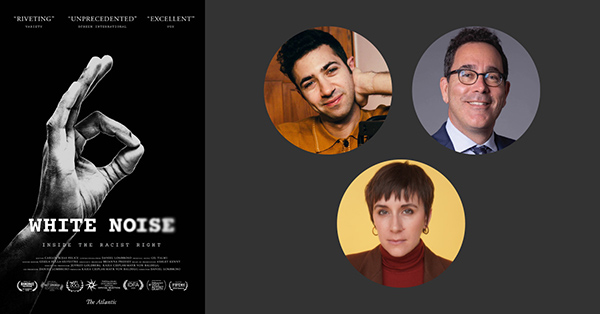
White Noise – In-Person Event & Livestreamed on YouTube (Discussion Only)
One week after the 2016 presidential election, white nationalists gathered in Washington, D.C., to celebrate the victory of President-elect Donald Trump. Addressing the crowd, the far-right leader Richard Spencer exclaimed, “Hail Trump! Hail our people!” to fanatical cheers and Nazi salutes. The Atlantic’s cameras captured exclusive footage of this moment, and the clip was shared widely on news networks and social-media platforms around the world.
WHITE NOISE, The Atlantic’s first feature documentary and Daniel Lombroso’s feature film debut, is the result of a four-year commitment to expose the roots of rising white nationalism in the U.S. and abroad. The film is a deeply reported journey through the underbelly of the alt-right, bringing viewers an unfiltered, clear-eyed look at a powerful extremist movement.
Join the Center for Jewish History for a screening of WHITE NOISE followed by a panel conversation with director and journalist Daniel Lombroso,Gavriel D. Rosenfeld, President of the Center for Jewish History and Professor of History at Fairfield University, and Anna Duensing, a historian specializing in evolving global politics of white supremacy across the twentieth century. They will discuss the ideas the alt-right has unleashed and how the movement has succeeded in infiltrating mainstream political discourse and shaping the direction of the United States.
Watch the trailer here: https://www.youtube.com/watch?v=HncFO8Sujvk&t=2s.
Fascism in America: Past and Present, edited by Gavriel D. Rosenfeld and Janet Ward, will be available for sale and signing by both editors after the screening and discussion.
About the Speakers
Daniel Lombroso is a director and journalist who spent the last decade building the Oscar-nominated video departments at The New Yorker and The Atlantic. His debut feature film, WHITE NOISE, based on his four years reporting inside the white power movement, premiered in 2020 to critical acclaim. It was named one of the top documentaries of the year by Vox and The Boston Globe. His short, AMERICAN SCAR, received an Honorable Mention for the Grand Jury Prize at DocNYC and was nominated for a National Magazine Award. His latest film, NINA & IRENA, is Executive Produced by Errol Morris and was one of the most celebrated short documentaries of 2023. Lombroso’s work has premiered at Sundance, TIFF, IDFA, and been recognized with seven Vimeo Staff Picks. He was on last year’s Forbes 30 Under 30 list.
Gavriel D. Rosenfeld is President of the Center for Jewish History and Professor of History at Fairfield University. He is the author of numerous books, including the co-edited volume (with Janet Ward), Fascism in America: Past and Present (Cambridge University Press, 2023) and The Fourth Reich: The Specter of Nazism from World War II to the Present (Cambridge University Press, 2019). He is an editor at the Journal of Holocaust Research and edits the blog The Counterfactual History Review.
Anna Duensing is a historian specializing in African American history, transnational social movements, and the evolving global politics of white supremacy across the twentieth century. She received her Ph.D. in History and African American Studies and an M.A. concentration in Public Humanities from Yale University and is currently a Postdoctoral Fellow at the Carter G. Woodson Institute for African-American and African Studies at the University of Virginia. She is working on her first book manuscript, tentatively entitled Fascism Is Already Here: Civil Rights and the Making of a Black Antifascist Tradition. She is also the host of a new podcast, “What It Is and How to Fight It,” which offers listeners a variety of perspectives on the question of fascism in the United States, past and present, through interviews with authors and activists.
Ticket Info:
In person: $12 general; $10 senior/student; $9 members; register here
YouTube livestream: Pay what you wish; register here
Please Note: The discussion only will be livestreamed on YouTube at approximately 8:40 pm. You can stream the film on Amazon here in advance of the event.
Presented by:


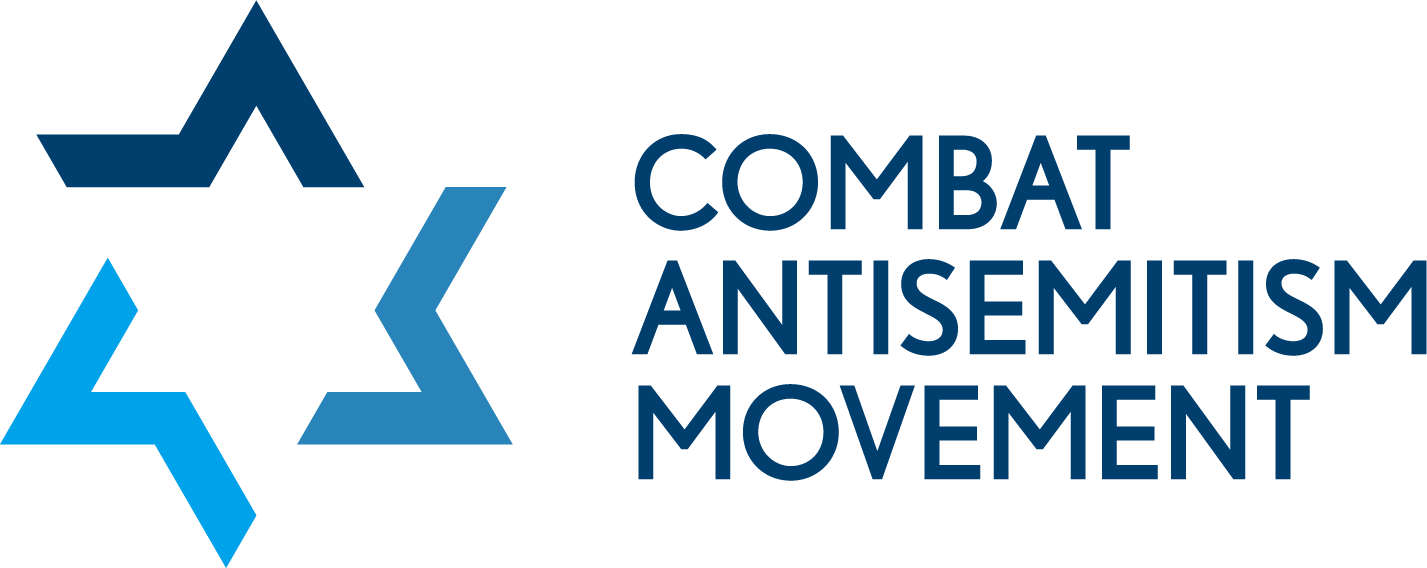
film and discussion
lecture
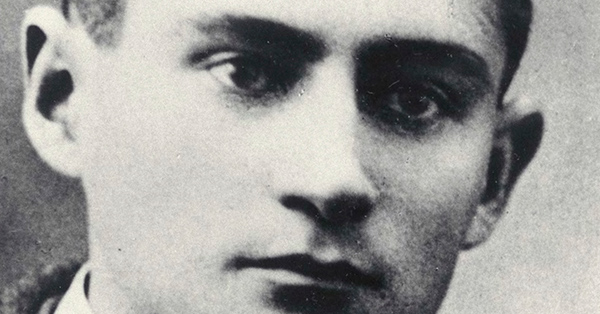
65th Leo Baeck Memorial Lecture by Hillel Kieval - In-person and Live on Zoom
About the Lecture
Still Reading Kafka? On Language, Literature, Friendship, and Identity in Central Europe
To pick up and read the novels or short stories of Franz Kafka hardly needs justification. His standing as one of the last century’s most important writers is assured. The question is: What can Kafka’s writings and the various contexts in which his life transpired—linguistic, familial, cultural, political—reveal about the textures of Jewish life in Central Europe at the turn of the century? In the 65th Annual Leo Baeck Memorial Lecture, Hillel Kieval (Washington University in St. Louis) revisits crucial aspects of Kafka’s life, work, and intellectual relationships, to explore what it meant to be both Jewish and a citizen of Prague before and after the First World War.
The Leo Baeck Memorial Lecture is endowed by Marianne C. Dreyfus and Family, the descendants of Rabbi Leo Baeck
About the Speaker
Hillel J. Kieval is the Gloria M. Goldstein Professor Emeritus of Jewish History and Thought at Washington University in St. Louis. Over the course of his career, has held visiting appointments at Charles University in Prague, the École des Hautes Études en Sciences Sociales in Paris, the Hebrew University of Jerusalem, the Universidad Hebraica in Mexico City, Vilnius University in Lithuania, and the Center for Advanced Judaic Studies at the University of Pennsylvania.
Hillel Kieval’s research interests focus on Jewish culture and society in Central and East-Central Europe in the nineteenth and twentieth centuries. They range from pathways of Jewish acculturation and integration to the impact of nationalism and ethnic conflict on modern Jewish identities, and from cross-cultural conflicts and misunderstandings to the discursive practices of modern antisemitism. His books include Blood Inscriptions: Science, Modernity, and Ritual Murder at Europe’s Fin de Siècle (2022); Prague and Beyond: Jews in the Bohemian Lands (Co-editor, 2022); Languages of Community: The Jewish Experience in the Czech Lands (2000); and The Making of Czech Jewry: National Conflict and Jewish Society in Bohemia, 1870-1918(1988).
In May 2022, Prof. Kieval was awarded the Silver Medal of the Faculty of Arts, from Charles University of Prague.
Ticket Info: Free; registration required
Presented by:

lecture
lecture
Passing in Print: (Non)Jewish News in the Mainstream Press during the Holocaust - Live on Zoom
In the early days of World War II, as the threat of Nazism loomed large, the Jewish Telegraphic Agency (JTA) and its non-sectarian subsidiary, the Overseas News Agency (ONA), embarked on a covert mission to inform the world about the escalating crisis in Europe. This lecture will uncover the ways in which these organizations operated to overcome significant barriers in news gathering and dissemination in a prejudiced media landscape. Moreover, it will explore how the JTA and ONA used a particular form of “passing” to place stories of Jewish persecution on the front pages of America's leading newspapers in their attempts to alter public perceptions of Jewish persecution in Europe without revealing their Jewish affiliations. The lecture traces the strategic decisions made by key figures in the Jewish journalistic world during a time of crisis that fundamentally reshaped how news was categorized, gathered, circulated, and consumed.
About the Speaker
Nathan Lucky holds a BA (Hons.) and MA in history from the University of British Columbia. Currently, he is a PhD student at the Strassler Center for Holocaust and Genocide Studies at Clark University. His areas of interest include Holocaust history, news media production and circulation, Jewish and non-Jewish relations, refugees, and espionage. He is the 2023-2024 recipient of The Rose and Isidore Drench Memorial Fellowship and the Dora and Mayer Tendler Endowed Fellowship in American Jewish Studies at the YIVO Institute for Jewish Research.
Ticket Info: Free; registration is required.
Presented by:

lecture
book launch & conversation
Rediscovering Mazaltob - In-person Event
Book presentation and discussion with the editors Yaëlle Azagury and Frances Malino.
Dr. Yaëlle Azagury is a writer, literary scholar and critic. She has taught French literature and Literature-Humanities at Barnard College, Columbia University, and SUNY-Purchase. She contributed essays and scholarly articles for Women Writing Africa (Feminist Press, 2008), Rethinking Jewish Culture and Society in North Africa and the Middle East (Indiana University Press, 2011) and other works. Her criticism has appeared in the New York Times, the Washington Post, the Jerusalem Report, and Lilith. A native of Tangier, Morocco, she holds graduate degrees from the Université Sorbonne-Nouvelle, Sciences-Po Paris, and Columbia University.
Frances Malino is the Sophia Moses Robison Professor of Jewish Studies and History Emerita at Wellesley College. She is author of The Sephardic Jews of Bordeaux: Assimilation and Emancipation in Revolutionary and Napoleonic France (1978) and A Jew in the French Revolution: The Life of Zalkind Hourwitz(1996) and co-editor of Essays in Modern Jewish History: a Tribute to Ben Halpern (1982), The Jews in Modern France(1985), Profiles in Diversity: Jews in a Changing Europe (1998), and Voices of the Diaspora: Jewish Women Writing in the New Europe (2005). Her current project is titled Teaching Freedom: Jewish Sisters in Muslim Lands. In 2012 she was named Chevalier dans l’Ordre des Palmes académiques by the French Ministry of Education. Malino is a co-founder and current President of Digital Heritage Mapping, whose flagship initiative is the Diarna Geo-Museum of North African and Middle Eastern Jewish Life.
Ticket Info: Free; RSVP/Suggested Donation
Presented by:
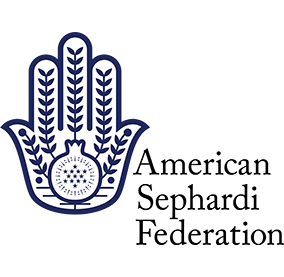
book launch & conversation
book talk
Neo-Nazi Terrorism and Countercultural Fascism - Live on Zoom
A new wave of aspiring neo-Nazi terrorists has arisen—including the infamous Atomwaffen Division, and they have a bible: James Mason’s Siege, which praises terrorism, serial killers, and Charles Manson. Neo-Nazi Terrorism and Countercultural Fascism: The Origins and Afterlife of James Mason's Siege documents the origins of Siege and shows how Mason’s vision emerged during debates in the 1970s after the splintering of the American Nazi Party/NSWPP. The second part of the book unveils for the first time how four 1980s musicians and publishers—Boyd Rice, Michael Moynihan, Adam Parfrey, and Nikolas Schreck—discovered and promoted the terrorist ideologue.
Join YIVO for a discussion of this book with author Spencer Sunshine.
This program is supported, in part, by public funds from the New York City Department of Cultural Affairs, in partnership with the City Council.
Ticket Info: Free; registration is required.
Presented by:

book talk
walking tour
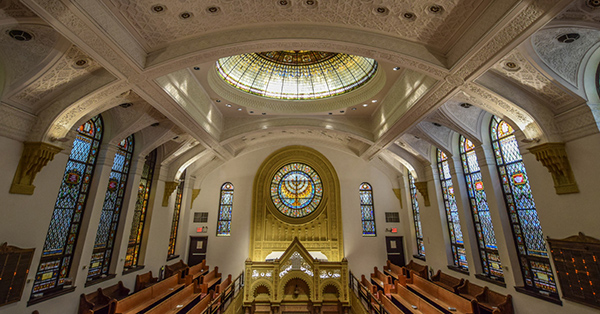
Walking Tour: Exploring the Jewish Upper West Side – In-person Event
Discover the vibrant tapestry of Jewish heritage on the Upper West Side alongside Barry Judelman, historian and tour guide. Stroll through a neighborhood brimming with cultural treasures, where synagogues, schools, and the essence of Jewish life intertwine with architectural marvels in Beaux Arts, Art Nouveau, and Art Deco styles.
The many sites of Jewish interest we’ll visit include: The Jewish Center, a Modern Orthodox synagogue that was among the first in the US to feature a pool and recreational space, Society for the Advancement of Judaism, the founding congregation of the Reconstructionist movement, and Congregation Rodeph Sholom, home of the first Reform day school in North America. Engage in enlightening discussions about how this community continues to influence the narrative of American Jewish identity, and savor delectable delights from a Jewish market along the way. Join us for an enriching exploration of history, culture, and the enduring spirit of Jewish life in New York City.
This tour will take place rain or shine. Note: Some tour stops are not wheelchair accessible. The meeting location and additional logistical information will be emailed to all registrants one week before the tour, and again the day before the tour.
NOTE: Limited spots available. Tickets will sell out quickly!
Ticket Info: $40 general; $32 Center or partner members. Register here
Presented by:

walking tour
lecture
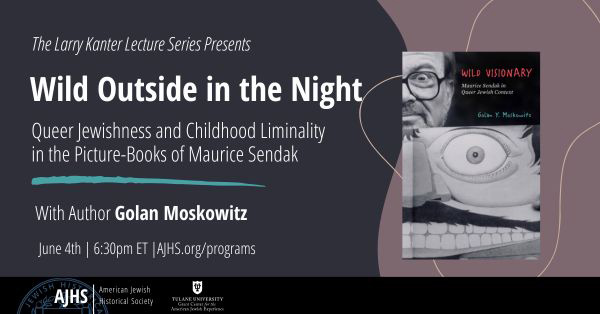
Wild Outside in the Night: Queer Jewishness and Childhood Liminality in the Picture-Books of Maurice Sendak - In-person Event and Live on Zoom
The late Jewish American gay artist Maurice Sendak (1928-2012) changed the face of children’s literature by depicting emotionally isolated, unruly, and ethnically particular protagonists who use fantasy to resist social coercion and self-erasure. In Wild Visionary: Maurice Sendak in Queer Jewish Context (Stanford University Press, 2020), Golan Moskowitz investigates the evolution of Sendak’s artistic vision and its appeal for American, Jewish, and queer audiences. The present talk will draw from that study, illuminating how Sendak’s multiple perspectives as a gay, Holocaust-conscious, American-born son of Yiddish-speaking Polish immigrants informed his life and work. It will also explore how his work interacted dynamically with his cultural surroundings, offering insights into experiences of marginality and creative resilience in twentieth- and twenty-first-century America.
Golan Moskowitz is Assistant Professor of Jewish Studies at Tulane University and a core faculty member of Tulane’s Grant Center for the American Jewish Experience. He teaches courses on Jewish gender and sexuality, American popular culture, Holocaust studies, and comics and graphic novels. He is the author of Wild Visionary: Maurice Sendak in Queer Jewish Context (Stanford University Press, 2020) and of several publications on intergenerational memory in post-Holocaust family narratives.
Ticket Info:
In person: $10 General Admission, $37 Admission + Copy of the Book
Online: Free with RSVP
Presented by:

lecture
lecture
Celia Dropkin as a Translingual Writer - Live on Zoom
Translingual author Celia Dropkin (1887-1956) wrote in three languages: Russian, Yiddish, and English. Though she produced her first literary works in Russian, she emigrated from the Russian Empire to the United States in 1912 and five years later, she began translating her Russian poems into Yiddish. It was in Yiddish that Dropkin made a name for herself as an author with a bold and original voice. Additionally, because she resided in the United States, English became increasingly important in her life as yet another language of her literary creativity. Although she is known only as a Yiddish author today, the role of Russian and English in Dropkin’s oeuvre cannot be ignored. In her literary activity, Dropkin navigated between Russian, Yiddish, and English and their corresponding cultures, challenging the literary boundaries established by national categories.
In this talk, Jakub Zygmunt will present a linguistic biography of Celia Dropkin, discuss selected translingual practices found in her work, and demonstrate what the translingual framework can tell us new about Dropkin’s work in particular and Yiddish literature in general.
About the Speaker
Jakub Zygmunt is a PhD candidate in Literary Studies at the University of Warsaw. His research project focuses on the relationship between Celia Dropkin’s oeuvre and various literary traditions, as well as strategies of translation that enabled her work to exist in different cultures. Jakub holds degrees in Jewish Studies and Law, which he pursued at the College of Inter-Area Individual Studies in the Humanities and Social Sciences at the University of Warsaw. He is the 2023-2024 recipient of The Vladimir and Pearl Heifetz Memorial Fellowship and the Vivian Lefsky Hort Memorial Fellowship at the YIVO Institute for Jewish Research.
Ticket Info: Free; registration is required.
Presented by:

lecture
book talk
Psychoanalysis and Jewish Languages - Live on Zoom
There is an academic interest in the "Jewish Freud," aiming to detect Jewish influences on Freud, his own feelings about being Jewish, and suppressed traces of Jewishness in his thought. This book takes a different approach, turning its gaze not on Freud but rather on those who seek out his concealed Jewishness. What is it that propels the scholarly aim to show Freud in a Jewish light? Naomi Seidman explores attempts to "touch" Freud (and other famous Jews) through Jewish languages, seeking out his Hebrew name or evidence that he knew some Yiddish. Tracing a history of this drive to bring Freud into Jewish range, Seidman also charts Freud's responses to (and jokes about) this desire. More specifically, she reads the reception and translation of Freud in Hebrew and Yiddish as instances of the desire to touch, feel, "rescue," and connect with the famous professor from Vienna.
Join YIVO for a discussion with Seidman about this newly published book, led by scholar Ken Frieden.
This program is supported, in part, by public funds from the New York City Department of Cultural Affairs, in partnership with the City Council.
Ticket Info: Free; registration is required.
Presented by:

book talk
exhibit opening
Runaway Husbands, Desperate Families: The Story of the National Desertion Bureau - In-person Event
Popular stereotypes about Jewish husbands are usually positive: they’re loyal, they’re good providers, they don’t drink to excess, and they aren’t violent. It’s no wonder most people have never heard of the National Desertion Bureau, an agency created in New York in 1911 to track down runaway Jewish husbands and bring them to justice. It turns out that the era of Jewish mass migration from Eastern Europe to North America, was accompanied by terrible cultural and social upheaval, poverty, and failure. One sad feature of this era was the phenomenon of broken families, which occurred on a mass scale.
The problem of Jewish men abandoning their families was so severe that along with the National Desertion Bureau, Yiddish newspapers like the Forverts, with a daily readership in the hundreds of thousands, published a popular column called “The Gallery of Missing Husbands,” which featured mug shots and descriptions of men who had left their wives and families in the lurch. There were even local psychics on the Lower East Side who specialized in tracking down missing husbands.
Addressing a true social epidemic in the Jewish community, the National Desertion Bureau worked with a multiplicity of governmental and private organizations to find these men and force them to pay alimony, child support, and serve jail time if they didn’t. From 1905 through the 1960s, the Bureau tracked more than 18,000 cases. Its files are rich in detail and are often short novellas unto themselves, with details on the tragedy of marital dissolution, abandoned children, and financial ruin.
Together with The Jewish Board, YIVO is pleased to present a new exhibition, Runaway Husbands, Desperate Families: The Story of the National Desertion Bureau, which traces the history of the National Desertion Bureau and includes never before seen records, documents, and photographs from the organization’s voluminous archives.
Join YIVO for the exhibition opening, with a panel discussion led by YIVO Senior Academic Advisor & Director of Exhibitions, Eddy Portnoy, and featuring Professor Annette Igra (Carleton College) and Dr. Annie Polland (President of the Tenement Museum).
This program is supported, in part, by public funds from the New York City Department of Cultural Affairs, in partnership with the City Council.
Ticket Info: Free; registration is required.
Presented by:

exhibit opening
book launch
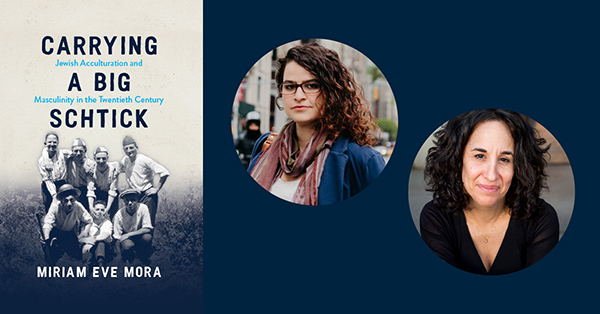
Carrying a Big Schtick: Jewish Acculturation and Masculinity in the Twentieth Century – In-person Event
The Center for Jewish History and the American Jewish Historical Society welcome Dr. Miriam Eve Mora for a discussion of her new book Carrying a Big Schtick: Jewish Acculturation and Masculinity in the Twentieth Century. She will be joined in conversation by Dr. Ronnie Grinberg (University of Oklahoma), author of Write Like a Man: Jewish Masculinity and the New York Intellectuals.
For 20th-century Jewish immigrants and their children attempting to gain full access to American society, performative masculinity was a tool of acculturation. However, this performance is consistently challenged by American mainstream society that holds Jewish men outside of the American ideal of masculinity. Depicted as weak, effeminate, cowardly, gentle, bookish, or conflict-averse, Jewish men have been ascribed these qualities by outside forces, but some have also intentionally subscribed themselves to masculinities at odds with the American mainstream.
Carrying a Big Schtick dissects notions of Jewish masculinity and its perception and practice in America in the 20th century through the lenses of immigration and cultural history. Tracing Jewish masculinity through major themes and events including both World Wars, the Holocaust, American Zionism, Israeli statehood, and the Six-Day War, this work establishes that the struggle of this process can shed light on the changing dynamics in religious, social, and economic American Jewish life.
Books by both speakers will be available for sale and signing during a reception after the program. Carrying a Big Schtick: Jewish Acculturation and Masculinity in the Twentieth Century (list price $39.99) will be available at a special discount price of $30. You may order the book with your ticket or purchase it during the reception.
About the Speakers:
Miriam Eve Mora serves as the director of academic programs at the Center for Jewish History in New York City. A historian of American immigration and ethnicity, Mora has served as the inaugural Historian in Residence for the Wyner Family Jewish Heritage Center at the New England Genealogical Historical Society and as the Marcus Center Fellow at the American Jewish Archives. She is cocreator of JewCE: The Jewish Comics Experience, a Jewish comic book and pop culture convention. Her previously published works on antisemitism, contemporary politics, and pop culture have appeared in the Washington Post, Journal of Jewish Identities, and Journal of Feminist Studies in Religion.
Ronnie Grinberg is Associate Professor of History (officially beginning in July 2024) and core faculty member of the Schusterman Center for Judaic and Israel Studies at the University of Oklahoma. She received her Ph.D. in American History from Northwestern University and Bachelor of Arts degree from Barnard College, Columbia University. Her research and teaching interests are in 20th-century America, American Jewish history, women’s and gender history, intellectual history, and social movements. Her book, Write Like a Man: Jewish Masculinity and the New York Intellectuals was published by Princeton University Press in March 2024. It examines the New York intellectuals, a prominent group of mostly male Jewish writers and critics at mid-century, through the lens of gender and ethnicity and in the process tells a larger story about the role of masculinity in American intellectual and political life in the second half of the 20th century. In December 2023 her article, “The First Lady of Neoconservatism’: Midge Decter and the Politics of Family Values” appeared in the Journal of American History. An earlier article, “Neither 'Sissy' Boy nor Patrician Man: New York Intellectuals and the Construction of American Jewish Masculinity” won the Wasserman Prize for Outstanding article in American Jewish History.
Ticket Info: Pay what you wish; register here
Presented by:


book launch
book talk
Homes of the Past - Live on Zoom
In 1940s New York, immigrant Jewish scholars sought to build a museum to commemorate their lost worlds and people. Among the Jews who arrived in the United States in the early 1940s were a small number of Polish scholars who had devoted their professional lives to the study of Europe's Yiddish-speaking Jews at the YIVO Institute for Jewish Research. Faced with the devastating knowledge that returning to their former homes and resuming their scholarly work there was no longer viable, they sought to address their profound sense of loss by continuing their work, under radically different circumstances, to document the European Jewish lives, places, and ways of living that were being destroyed. In pursuing this daunting agenda, they decided to create a museum to memorialize East European Jewry and educate American Jews about this legacy. YIVO scholars determinedly pursued this undertaking for several years, publicizing the initiative and collecting materials to exhibit. However, the Museum of the Homes of the Past was abandoned shortly after the war ended.
Homes of the Past explores this largely unknown episode of modern Jewish history and museum history and demonstrates that the project, even though it was never realized, marked a critical inflection point in the dynamic interrelations between Jews in America and Eastern Europe.
Join YIVO for a discussion with author Jeffrey Shandler about this book, led by Deborah Dash Moore.
This program is supported, in part, by public funds from the New York City Department of Cultural Affairs, in partnership with the City Council.
Ticket Info: Free; registration is required.
Presented by:

book talk
lecture
Leo Rosten and the Translation of Yiddish Joy - Live on Zoom
Sunny Yudkoff | Delivered in English.
This lecture examines a book in Yiddish studies that is frequently mentioned but little read: The Joys of Yiddish by Leo Rosten. Published in 1968, the work went on to become a bestseller. It remains in print to this day and has been translated into French, German, and Czech. The goal of this talk will be to analyze the construction and reception of the volume. To do so, Prof. Yudkoff will draw on archival sources, including fan mail, correspondence with YIVO researchers, and early drafts of the popular lexicon. These will be read together with book reviews published in both English and Yiddish, by authors as varied as anthropologist Margaret Mead and Yiddish researcher Mortkhe Kosover, the first director of the YIVO Library in New York. This talk will further bring Rosten’s volume into conversation with the work of contemporary affect theorists as well as cultural historians of postwar Jewish reading practices. Throughout, the guiding question will be: What vision of the Yiddish joy did Rosten project?
About the Speaker
Sunny Yudkoff joined the Department of German, Nordic, and Slavic, as well as the Mosse/Weinstein Center for Jewish Studies at the University of Wisconsin-Madison, in the fall of 2016. Previously, she taught at the University of Chicago. Her research and teaching focuses on Jewish literary production from the mid-nineteenth to twenty-first centuries. Her first book, Tubercular Capital: Illness and the Conditions of Modern Jewish Writing, was published with Stanford University Press (2019). She regularly teaches courses in both Jewish Studies and the Medical Humanities. Her work has appeared in Prooftexts, Journal of Jewish Social Studies, Studies in American Jewish Literature, Literature and Medicine, and elsewhere.
Ticket Info: Free; registration is required.
Presented by:

lecture
discussion
Memories of Morris Katz - Live on Zoom
Do you have a Morris Katz story? We'd love to hear it!
Morris Katz made a name for himself as a painter who not only worked with incredible speed – whipping up paintings within just minutes – but who did so while engaging his audiences with Borscht Belt-style shtick and then auctioning the paintings off to all comers. Katz regularly brought his routine to Borscht Belt hotels and delighted audiences with his extraordinary speed. He holds the Guinness World Record for world's fastest painter, which he accomplished using only a palette knife and toilet paper. Famous for his "instant art," Katz is remembered as a prolific artist, selling more original paintings than any other artist in the world.
Join YIVO to celebrate the legacy of Morris Katz by sharing your Morris Katz story. This program will be held as a Zoom meeting, and attendees will be encouraged to share their favorite memories of Morris Katz. YIVO Senior Academic Advisor & Director of Exhibitions, Eddy Portnoy will provide opening remarks.
This program is supported, in part, by public funds from the New York City Department of Cultural Affairs, in partnership with the City Council.
Ticket Info: Free; registration is required.
Presented by:

discussion
lecture
Jewish Resistance during the Pogroms in Ukraine in 1918-1921 (in Yiddish) - Live on Zoom
Elissa Bemporad | Delivered in Yiddish.
This talk will explore the different forms of Jewish resistance to the wave of unprecedented violence that devastated the Jewish communities of Ukraine in 1918-1921. The responses to the pogroms took on multifaceted expressions ranging from the establishment of self-defense units to the systematic collection of witness accounts and reports by writers, medical workers, and communal leaders; from the erection of memorials to the creation of archives. The impetus for these responses to the khurbn, or destruction, in the Ukrainian towns and cities was as many-sided as the expressions of resistance themselves, and varied from the desire to preserve the memory of violence for generations to come to the attempt to ensure the perpetrators’ accountability. It will be argued that the words and deeds of the Jewish men and women who experienced the violence of this period built both on the memory of previous waves of pogroms, as well as on new strategies that grew out of the specific geopolitical reality engendered by World War I and the Bolshevik Revolution.
About the Speaker
Elissa Bemporad is Professor of History and Ungar Chair in East European Jewish History and the Holocaust at Queens College and CUNY Graduate Center. She is a two-time winner of the National Jewish Book Award. She is the author of Becoming Soviet Jews: The Bolshevik Experiment in Minsk (Indiana University Press, 2013), Legacy of Blood: Jews, Pogroms, and Ritual Murder in the Lands of the Soviets (Oxford University Press, 2019), and Revolution, Civil War, and New Ways of Life (NYU Press, 2025). She is the co-editor of three volumes, including Women and Genocide: Survivors, Victims, Perpetrators (Indiana University Press, 2018) and Pogroms: A Documentary History (Oxford University Press, 2021). She is currently working on a biography of the socialist-turned-communist Ester Frumkin. She is editor of Jewish Social Studies and Series Editor of Yiddish Voices for Bloomsbury Academic.
Ticket Info: Free; registration is required.
Presented by:

lecture
book talk
Desires by Celia Dropkin - In-person Event and Live on Zoom
Desires (White Goat Press, 2024), the only novel by Celia (Tsilye) Dropkin (1887–1956), was originally serialized between March 31 and June 6, 1934, in the Jewish Daily Forward, or Forverts. Anita Norich’s new translation brings this novel to English readers.
Dropkin was born in Babruysk, a city in what is now Belarus, and immigrated to New York in 1912, where she adopted Yiddish as her primary literary language. In the 1930s, she turned to prose, publishing this novel and ten short stories that appeared in the journal Tsukunft (Future). In Desires, as in much of her work, Dropkin reflects on the internal and external conflicts of love, domesticity, and the erotic life. Through characters carefully drawn from her own immigrant milieu, Dropkin addresses the yearnings of both the body and mind, the tension between excitement and security, and the conflicting impulses that are part of the human condition.
Join YIVO for a discussion about this new translation with Norich in conversation with Director of Publishing and Public Programs at the Yiddish Book Center, Lisa Newman.
This program is supported, in part, by public funds from the New York City Department of Cultural Affairs, in partnership with the City Council.
Ticket Info: Free; registration is required.
Presented by:

book talk
lecture
Testimonies in Response and What They Tell Us about the Development of Spoken Yiddish (in Yiddish) - Live on Zoom
Moshe Taube | Delivered in Yiddish.
Since the 15th century, many testimonies in "Loshn Ashkenaz" (which may refer both to Yiddish and to German) have been preserved in responsa(rabbinic pronouncements on matters of Jewish law written in response to questions asked of halakhic authorities). The testimonies appear in the rabbinical court records, otherwise written in Hebrew, and are quoted inside the halakhic question. Although the testimonies themselves begin and end with Hebrew abbreviations that frame the quotations (functioning like the English terms quote, unquote), they contain many words of Loshn-koydesh (Hebrew/Aramaic) origin such as kale, milkhome, khasene, efsher from everyday Yiddish usage ("Merged Hebrew"), but much material from "Whole Hebrew" as well.
On the phonetic level, not much is to be learned about the pronunciation of the words in the testimonies since their spelling is not consistent and, furthermore, because Hebrew script is underspecified in many regards, often not reflecting the distinction between many sounds, especially vowels and diphthongs. The domains where we may learn the most from these testimonies about the development of spoken and written Yiddish are syntax, morphology, and the lexicon. Many phenomena thought to belong to Early Modern Yiddish (18th century onward) are attested in 17th century testimonies and thus appear to be at least one century older.
About the Speaker
Moshe Taube is Professor Emeritus of Linguistics and Slavic Studies at The Hebrew University of Jerusalem. His research focuses on two main domains: syntax of modern Yiddish and philology of medieval translations from Hebrew. He taught in the two departments numerous courses on both topics, as well as courses on general linguistics. He served as head of the Department of Linguistics and as Head of the Institute of General Humanities. He is the author of The Logika of the Judaizers: A Fifteenth-Century Ruthenian Translation from Hebrew (2016) and The Cultural Legacy of the Pre-Ashkenazic Jews in Eastern Europe (2023). He published numerous articles in both domains, which can be viewed at his Academia page: huji.academia.edu/MosheTaube.
Ticket Info: Free; registration is required.
Presented by:

lecture
lecture
Instilling Yiddishkayt into Zionism - Live on Zoom
Dina Porat | Delivered in English.
Determined neither to allow the Holocaust to erase East European Jewish culture nor to permit Zionism and the kibbutz to beget a lifestyle devoid of ceremony and Jewish content, the WWII partisan, poet and intellectual Abba Kovner tried to create a new kind of community at Kibbutz Ein HaHoresh. Beginning in the early 1950s, within a society that in theory was supposed to distance itself from Jewish tradition and create a new lifestyle, Kovner forged his own synthesis between old and new. According to his good friend "Yitz" (Rabbi Irving) Greenberg of New York, part of Kovner's greatness was his understanding that Judaism's internal significance was not limited to time or place, and that there was a need to bridge the gap between what had been and what should be. "After the Holocaust, he was ready to scrap the old ways and start anew. He created a combination of Jewish values and secular realism, of continuity and innovation." Kovner considered Judaism as "a consensus within a difference of opinion" and difference of opinion as "the cornerstone of Jewish culture," and he was prepared to continue building from within the disagreement. Kovner rejected the approach of the movement's leaders, who themselves had come from religious or traditional homes but had adopted the movement’s motto that "the old world had to be razed to its foundations," and who loathed the idea of returning to the customs of the Diaspora. From the day of Kovner's arrival in Eretz Israel, they were suspicious that he would try to put a skullcap on the movement's head. However, year after year, holiday and festival after ceremony and anniversary, instead of confronting them, Kovner would suggest yet another idea, attempting to change habits from within until the kibbutz was a complete creation, a Jewish-kibbutz-collective whose existence would draw its inspiration from the Jewish foundation, which would in turn be renewed through the existence of the kibbutz. Replacing kibbutz ideology with Judaism would mean admitting that the kibbutz movement had failed to create a society of value and significance, unthinkable for the movement's leaders in the 1950s; only a combination would be acceptable, if that. Kovner wanted to integrate the two to perpetuate not only the Jewish community that had been destroyed but also the lost youth movement, his European HaShomer HaTza’ir.
About the Speaker
Prof. Dina Porat is the founding head of the Kantor Center for the study of Contemporary European Jewry and served as head of the Department of Jewish History, of the Rosenberg School for Jewish Studies, and as incumbent of the Alfred P. Slaner Chair in Antisemitism and Racism – all at Tel Aviv University. She served as the Chief Historian at Yad Vashem (2010-2021) and is now its academic advisor.
Ticket Info: Free; registration is required.
Presented by:

lecture
lecture
Libes briv (18th C.): Isaac Wetzlar’s Call for Reform of Jewish Society and Education (in Yiddish) - Live on Zoom
Marion Aptroot | Delivered in Yiddish.
Isaac Wetzlar, a Jewish merchant in Germany, writes a Yiddish letter of brotherly love to his brothers and sisters in the mid-18th century. He criticizes the fabric of Jewish society in the German lands and lays out plans for a reform of Jewish education in Ashkenaz in which both Hebrew and Yiddish play a part – for both sexes. Wetzlar calls for a return to basics within Jewish tradition, but he is also inspired by the contemporary Pietist Christian revival movement.
Further reading:
- The Libes Briv of Isaac Wetzlar. Edited and translated by Morris M. Faierstein. Atlanta, Ga.: Scholars Press, 1996.
- Aptroot, Marion, and Rebekka Voß, eds. Libes Briv (1748/49) Isaak Wetzlars pietistisches Erneuerungsprogramm des Judentums: Textedition, Übersetzung, Kommentar und historische Beiträge. Hamburg: Buske, 2021.
About the Speaker
Marion Aptroot received an MA in Romance Languages from Leiden University and a DPhil in Yiddish Studies from the University of Oxford. After teaching as Preceptor in Yiddish at Harvard from 1993–1996, she was appointed professor of Yiddish Culture, Language and Literature at Heinrich Heine University Düsseldorf. Her research focuses on older Yiddish literature and the history of the Yiddish language in their broader contexts. She has written, co-edited or co-authored several books, including Araynfir in der yidisher shprakh un kultur (2002, 2016), Storm in the Community: Yiddish Polemical Pamphlets of Amsterdam Jewry, 1797–1798 (2002), Isaak Euchel, Reb Henoch, oder: woß tut me damit? Eine jüdische Komödie der Aufklärungszeit (2004), Jiddisch: Geschichte und Kultur einer Weltsprache (2010, 2023), Leket: Yiddish Studies Today (2012), Yiddish Language Structures (2014), Yiddish Knights (2020).
Ticket Info: Free; registration is required.
Presented by:

lecture
theater
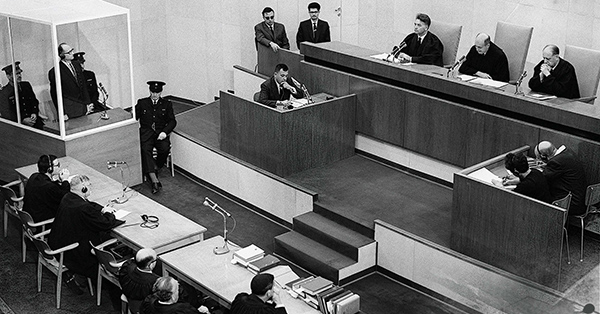
The Trial of Adolf Eichmann - In-person Event
Adapted on stage by David Serero
Inspired by actual events, this powerful drama takes audiences on a haunting journey through one of the most infamous trials in history, examining the depths of human evil and the quest for justice.
Don’t miss this compelling and thought-provoking theatrical experience as the world premiere of “The Trial of Adolf Eichmann” opens in July 2024 at the Center for Jewish History, inviting audiences to reflect on the lessons of history and the enduring struggle for justice and reconciliation.
July 21 at 7:00PM EST
July 22 at 8:00PM EST (Premiere)
July 23 at 3:00PM EST
July 25 at 8:00PM EST
Ticket Info: $26-$36
For questions and more details please call 855.688.7277 (ext.1)
Presented by:

theater
theater

The Trial of Adolf Eichmann - In-person Event
Adapted on stage by David Serero
Inspired by actual events, this powerful drama takes audiences on a haunting journey through one of the most infamous trials in history, examining the depths of human evil and the quest for justice.
Don’t miss this compelling and thought-provoking theatrical experience as the world premiere of “The Trial of Adolf Eichmann” opens in July 2024 at the Center for Jewish History, inviting audiences to reflect on the lessons of history and the enduring struggle for justice and reconciliation.
July 21 at 7:00PM EST
July 22 at 8:00PM EST (Premiere)
July 23 at 3:00PM EST
July 25 at 8:00PM EST
Ticket Info: $26-$36
For questions and more details please call 855.688.7277 (ext.1)
Presented by:

theater
lecture
Musical Pripetshik: Lyrics and Melodies of Traditional Yiddish Folksongs - Live on Zoom
Michael Lukin | Delivered in English.
Most of the Yiddish songs we know today were created in the first half of the 20th century and distributed through commercial channels such as sheet music, concerts, radio broadcasts, records and CDs, theater stages, and more recently through songbooks produced in educational settings around the world. Our discussion focuses on lesser-known songs – Eastern Yiddish musical folklore, which emerged over a period of approximately four hundred years preceding the formation of the “popular” repertoire. Although we lack transcriptions of melodies or lyrics from before the end of the 19th century, a comparative study of documentation collected from then until the middle of the 20th century reveals that older layers of this musical-poetic creativity had been preserved over long periods of time. I refer to this older repertoire as the "musical pripetshik." Similar to the traditional combined home-heat-generating cooking oven known as the pripetshik, this old song repertoire was an integral part of Jewish culture, evolving in meaning and function over time. While for many, the image of the pripetshik corresponds to the nostalgic song by Mark Varshavski of 1901, this lecture will explore the earlier history of this and other poetic and musical images to offer an appreciation of their significance.
About the Speaker
Dr. Michael Lukin of the Jewish Music Research Centre (Hebrew University of Jerusalem) researches the traditional culture of Yiddish speakers from various perspectives: the ethnomusicological, the folkloristic, and the historical. His recent publications in Polin, Shofar, Oxford Handbook of Slavic and East European Folklore, and Music Traditionsilluminate the music and poetics of Yiddish folksongs and the history of their scholarship. Over the past four years, as a Polonsky Fellow in Oxford and a Mandel-Scholion Postdoctoral Fellow at the Hebrew University of Jerusalem, he has engaged in extensive exploration of additional aspects of Jewish Eastern European music and folklore, including semiotics of various genres, their historical development, as well as their encounters with non-Jewish traditions. Lukin teaches courses on music and folklore in the Yiddish-speaking cultural realm, Hasidic musical thought, and music by Jews – at the Hebrew University and Bar-Ilan University. This year he has been a fellow at the Katz Center for Advanced Judaic Studies at the University of Pennsylvania, working on his new project about Hasidic nigunim.
Ticket Info: Free; registration is required.
Presented by:

lecture
theater

The Trial of Adolf Eichmann - In-person Event
Adapted on stage by David Serero
Inspired by actual events, this powerful drama takes audiences on a haunting journey through one of the most infamous trials in history, examining the depths of human evil and the quest for justice.
Don’t miss this compelling and thought-provoking theatrical experience as the world premiere of “The Trial of Adolf Eichmann” opens in July 2024 at the Center for Jewish History, inviting audiences to reflect on the lessons of history and the enduring struggle for justice and reconciliation.
July 21 at 7:00PM EST
July 22 at 8:00PM EST (Premiere)
July 23 at 3:00PM EST
July 25 at 8:00PM EST
Ticket Info: $26-$36
For questions and more details please call 855.688.7277 (ext.1)
Presented by:

theater
lecture
Ethnographers between Yiddish and Polish: a Study in Intellectual History (in Yiddish) - Live on Zoom
Karolina Szymaniak | Delivered in Yiddish.
Chaim Chajes, secretary of YIVO's Ethnographic Commission and a figure central to establishing its early research program, is barely mentioned in publications devoted to Jewish ethnography. Daniel Fajnsztejn, the first Doctor of Ethnology at Stefan Batory University in Vilna, appears in the pages of Jewish history only as a member of the "Paper Brigade" in the Vilna Ghetto. Their near complete invisibility in Polish and Jewish intellectual history is, in part, a result of their simultaneous membership in two different cultural spheres and intellectual worlds – as figures of the Polish-Jewish "cultural borderland." This lecture will present fuller profiles of both researchers and their role in shaping modern ethnography and what could have become a new field of study, the development of which was interrupted by the outbreak of World War II and the Holocaust.
This work is based on research conducted together with Prof. Anna Engelking.
About the Speaker
Karolina Szymaniak is Assistant Professor in the Jewish Studies Department of the University of Wroclaw and Research Fellow at the Jewish Historical Institute (Warsaw). Her research interests range across modern Yiddish literature, Polish-Jewish cultural relations, and translation studies. In addition to having taught Yiddish language and culture throughout Poland and Europe, she has also served as a consultant for the POLIN Museum and as a curator for the Museum of Modern Art in Lodz. Her recent publications include Montages: Debora Vogel and the New Legend of the City and My wild goat: Anthology of Women Yiddish Poets (in Polish). She is also the editor of Rachel Auerbach's Ghetto Writings (in Polish), which received the 2016 Polityka History Award, as well as the memoirs of Malke Lee and Hinde Bergner.
Ticket Info: Free; registration is required.
Presented by:

lecture
theater

The Trial of Adolf Eichmann - In-person Event
Adapted on stage by David Serero
Inspired by actual events, this powerful drama takes audiences on a haunting journey through one of the most infamous trials in history, examining the depths of human evil and the quest for justice.
Don’t miss this compelling and thought-provoking theatrical experience as the world premiere of “The Trial of Adolf Eichmann” opens in July 2024 at the Center for Jewish History, inviting audiences to reflect on the lessons of history and the enduring struggle for justice and reconciliation.
July 21 at 7:00PM EST
July 22 at 8:00PM EST (Premiere)
July 23 at 3:00PM EST
July 25 at 8:00PM EST
Ticket Info: $26-$36
For questions and more details please call 855.688.7277 (ext.1)
Presented by:

theater
film screening and discussion
Joseph Brodsky: Epitaph for a Centaur, Six Years Later - In-person Event
Join YIVO and Poetry in America for a panel discussion and screening of a short film examining the life of Joseph Brodsky, the celebrated Russian-Jewish American writer and Nobel Laureate.
Through analyses of two of Brodsky's evocative poems, “Epitaph for a Centaur” and “Six Years Later,” this 25-minute film encapsulates Brodsky's exploration of identity, belonging, and the passage of time. The film examines the paradoxical relationship between the U.S. and Russia during the Cold War, intricately portrayed through the symbolic figure of the centaur—a representation of Brodsky’s own multi-faceted existence as Russian, American, and Jewish. By delving into the intricate language of Brodsky’s poetry, this short film explores Brodsky’s Jewish identity, his legacy, and the political undertones of his writing.
This program is supported, in part, by public funds from the New York City Department of Cultural Affairs, in partnership with the City Council.
Ticket Info: Free; registration is required
Presented by:

film screening and discussion